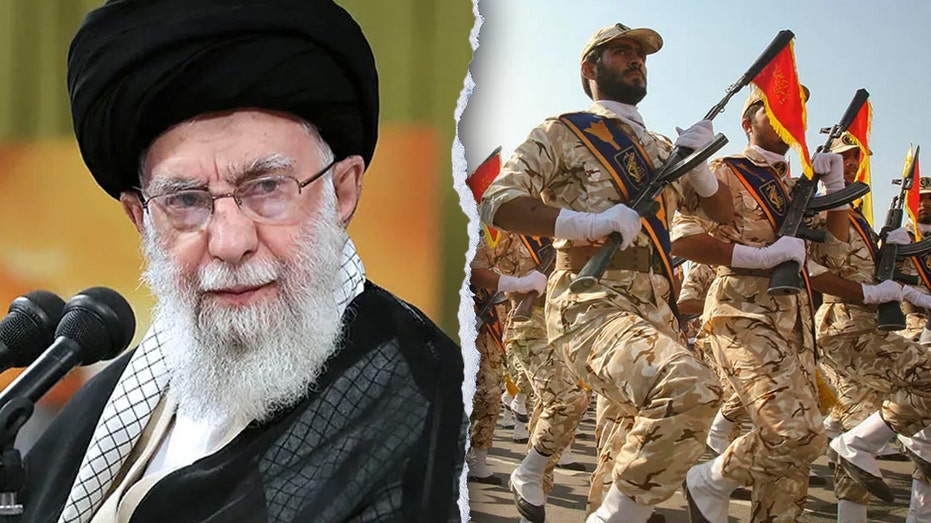What's next for Iran's terror army, the IRGC, after devastating military setbacks?
Once a revolutionary militia, Irans Islamic Revolutionary Guard Corps built power through ideology and fear. Now, after devastating losses, its future is uncertain.After major military setbacks, Irans IRGC faces a turning point. Experts explain its roots, power, and whether its reign of repression and terror can endure.Once a fringe militia born of revolution, Irans Islamic Revolutionary Guard Corps (IRGC) has grown into the regimes most feared and powerful force. But according to Dr. Afshon Ostovar, a leading expert on Iran and author of "Vanguard of the Imam: Religion, Politics, and Iran's Revolutionary Guards," said the recent U.S. and Israeli strikes in Iran may have permanently altered its trajectory.HERES WHAT A POST-AYATOLLAH IRAN COULD LOOK LIKE IF WAR WITH ISRAEL LEADS TO REGIMES FALL"What the IRGC tried to achieve over the last 25 years is basically toast," Ostovar told Fox News Digital, "Their campaign to build a military deterrent at home through missiles and nuclear enrichment, and to expand regionally through proxies, has essentially collapsed."Founded in the wake of the 1979 revolution, the IRGC was created to safeguard and spread the Islamic Republics values often through violence. Ostovar describes how its legitimacy evolved over time, initially drawn from the overthrow of the Shah, then the Iran-Iraq War, and later through the manufactured narrative of an eternal struggle with the U.S. and Israel.Behnam Ben Taleblu, Senior Director of FDD's Iran Program Behnam Ben Taleblu, told Fox News Digital the IRGCs origin reflects a deep mistrust of Irans traditional military, which had remained loyal to the Shah."The IRGC were created through efforts to collect pro-regime armed gangs called Komitehs. They enforced revolutionary edicts and developed a parallel and ideological military force due to clerical skepticism in the national army," he explained."The IRGC are tasked with preserving and defending the revolution in Iran," Taleblu said. "Thats one reason why the 1979 Islamic Revolution has not been tamed, nor has the regimes extremism lost any luster. If anything, terrorism and hostage-taking have continued.""They created a boogeyman in the U.S. and Israel," Ostovar added. "But today, that ideology no longer resonates with most Iranians. The majority want better relations with the West and are tired of the regimes isolationist stance."Today, the IRGC is deeply intertwined with the clerical elite. "The IRGC and the clerical elite are partners in power, treating Iran as a springboard to export their revolution," Taleblu noted.EXILED IRANIAN PRINCE TELLS TRUMP HE CAN BE 'ONE OF HISTORY'S GREAT PEACEMAKERS' AMID TALK OF REGIME CHANGEOver the past year, Iran has suffered a series of strategic defeats: Hezbollah has been degraded in Lebanon, Hamas crippled in Gaza, Syria effectively lost, and Iranian military infrastructure including nuclear and missile sites destroyed in many cases by U.S. and Israeli strikes. Ostovar says these losses have decimated the IRGCs regional footprint and forced the regime to reevaluate its strategy."They can try to rebuild everything but that would take too long and be too difficult," he said. "More likely, well see them repress harder at home and lean on China and Russia to rebuild conventional military capabilities like air defense and advanced jets."Internally, the IRGCs economic empire is also under growing strain. Sanctions, cyberattacks, and battlefield losses have made operations far more difficult. Ostovar said that foreign banks avoid any connection with Iran out of fear they may inadvertently deal with IRGC-linked entities, forcing the group to operate through front companies abroad. "Theyve lost a lot, and now theyll have to redirect their limited resources to rebuild. Thats going to stretch them even thinner."ISRAEL'S 'RESOUNDING' MILITARY CAMPAIGN AGAINST IRAN COULD BE HISTORIC TURNING POINT, EXPERTS SAYDespite these pressures, both Ostovar and Taleblu agree that the IRGC is unlikely to turn against the regime. "Much like the regime elite, the IRGC is at a crossroads," Taleblu said. "They have lost much of their strategic brain trust, but are likely to remain loyal for a combination of ideological and material reasons so long as the status quo doesnt change."Looking ahead, Iran may shift focus inward, relying more on domestic repression than on external terror. "They cant get weapons into Gaza. Theyve lost access to Lebanon. They may still attempt terrorism, but theyve failed repeatedly especially against Israeli targets," Ostovar said. "In contrast, repressing their own people is something they can do easily."He warns that Iran could become "more insular, more autocratic more like North Korea than what it is today." While regime collapse is always a possibility, Ostovar believes autocracies are often resilient. "Look at Venezuela or Cuba theyve run their countries into the ground but still hold on to power."Ostovar thinks change and not for the better could come via generational shift. "The IRGCs younger cadre is less religious but no less hardline," he said. "They may not care about hijabs, but theyve spent the last two decades fighting the U.S. and Israel in Iraq, Syria, and Lebanon. Thats the war they know."Some reformist elements within the regime envision a different path one focused on normalization and growth. "They want to preserve the regime not by fighting the world, but by opening up to it," Ostovar said. "They look more to Vietnam or China as models."Taleblu warned that despite recent setbacks, the IRGCs grip remains strong. "Right now, the Guards have power without accountability, wielding political, economic, and military influence in Iranian policy. How this influence is channeled by the next generation of Guardsmen remains to be seen."




